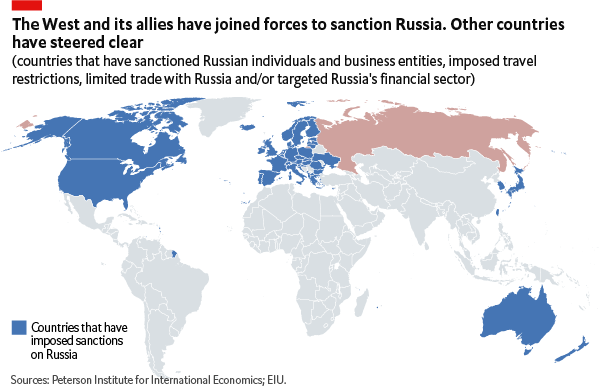This week, Lithuania banned 50% of the goods transiting on its territory that come from mainland Russia heading into the Russian exclave of Kaliningrad, a territory named after the Soviet hero Mikhail Kalinin, on the Baltic Sea, that the Western powers agreed to give to the Soviet Union at the end of WW2 in 1945. The German population was fully expelled in 1949 and replaced with people from the Soviet Union. The port is very strategic for Russia because it is the only port of its territory that remains ice-free during a normal winter. Nowadays, Russia has placed in this exclave nuclear weapons, and has made it the headquarters of its Baltic Fleet. Kaliningrad has over 1 million inhabitants and is also one of the most prosperous regions of the Russian Federation. With the dissolution of the Soviet Union in 1991 first, and the entry of Poland and Lithuania into the European Union in 2004, Kaliningrad found itself surrounded by 'rival countries'. Russia was then promised by the EU that all its goods and citizens heading to Kaliningrad could transit through the territory of Lithuania without any problems. However, after the full-scale invasion of Ukraine that started on February 24th, the EU has imposed heavy trade and financial sanctions over Russia; among one of them that started to apply from June 17th, the prohibition of coal, iron, material construction and products containing advanced technologies to circulate through Lithuania with Kaliningrad as final destination. Before the sanctions, an average of 100 Russian freight trains were connecting mainland Russia with Kaliningrad every month, and only a small portion of imports were delivered by sea. Because of this, Kaliningrad will experience a quasi-blockade that will damage severely the life of the local population. The Kremlin has reacted furiously to this situation by declaring that this is a "hostile action that goes against all agreements, and because of that, the population of Lithuania shall suffer a lot of pain as a consequence". The Kremlin has added also in the last weeks that "the West is clearly waging an economic war against Russia and that the response will not be diplomatic, but a practical one". On the other side, the center-right government of Lithuania has explained that this not a unilateral decision, nor a blockade, as 50% of goods and all Russian citizens can still transit. In addition to that, Lithuania states that it is just following EU decisions about collective sanctions against Russia, so Lithuania is not to be blamed for this situation. Nevertheless, all Russian trains are currently carefully followed by Lithuanian authorities, and even by the Air Force if it is suspected that the deliveries may pose a national security concern. Lithuania has also cut all gas and oil imports from Russia and is asking NATO to send more permanent troops to its territory. Following this, the sanctioned products will have to travel now by sea from Saint Petersburg to Kaliningrad, as the EU has also imposed a travel ban to all Russian airplanes. Russia may retaliate by disrupting electricity connections in Lithuania using the fact that the grid system is the same for both countries and therefore the energetic interdependence is still big. There is also the fear that Russia may want to answer with 'the same coin' by setting a blockade over the Lithuanian coast. Another measure could be also to increase cyberattacks on critical infrastructure. Lithuania, Latvia and Estonia, have stressed that Russia might launch an attack on them if Putin is not defeated in Ukraine. This because around 20% of the population living in the Baltic states is ethnically Russian, all three countries have borders with Russia, and the historical relationship with Moscow has been very harsh. Putin has declared very clearly that the intentions of its foreign policy are to defend Russian areas of influence; this includes the eastern parts of Ukraine and Moldova, and Central Asia. Moreover, because of the strategic location of Kaliningrad and the amount of Russian population living in the Baltic states, it is possible that the conflict with Lithuania may extend the war that started in Ukraine into other European countries, and thus making it a global conflict.
https://www.google.com/amp/s/amp.cnn.com/cnn/2022/06/21/europe/kaliningrad-explainer-russia-lithuani






Comments